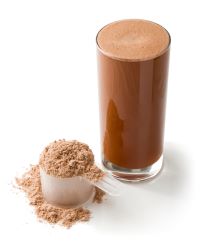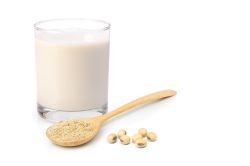Resources
Search >>
Search >>
Discover how SDS-PAGE, a powerful protein analysis method, supports ingredient quality, transparency, and innovation in the food industry—from meat and dairy to plant-based products.
Fast, accurate, and always on time—our 24-hour rail inspection network delivers trusted, on-site results without delays or uncertainty. Whether routine or urgent, we ensure every inspection is fair, reliable, and efficient. Check out our infographic on how we are here for you.
Discover how a leading plant-based food company partnered with Eurofins DQCI to implement a precise calibration strategy, ensuring consistent and accurate protein testing across multiple production sites.
With a more wellness-conscious consumer market, virgin olive oil has an opportunity to attract customers with its health-boosting properties tied to polyphenols. In our webinar, John Reuther discuses pros and cons of testing methods for polyphenol determination and introduces a new quantitative method. Then, Mary Mori of California Olive Ranch discusses California agriculture regulations regarding discharge of waste streams and effect in field.
A2 beta-casein milk is gaining popularity as the health-oriented consumer base grows. Reliable A2 products start with pure A2 raw milk. Traditional genetic testing is limited to single cows and raw products. Eurofins offers assay and LC-MS/MS methods to test beta-casein protein levels in raw milk from individual cows and batches, as well as finished products. This article covers the science behind A2 beta-casein and the testing options at Eurofins DQCI.
A2 beta-casein milk is growing in popularity as consumers learn about the potential health effects of the A1 beta-casein variant. Understanding the testing options is the first step for brands and retailers to provide trustworthy A2 dairy product. This video explains the science of A2 beta-casein milk and the unique testing options at Eurofins.
Eurofins is proud to announce that our method for determining potency in hemp has been approved and validated by the AOAC.
Eurofins DQCI Announces Partnership with Southeast Milk, Inc. (SMI) to Assume Operational Responsibility of Belleview, Florida Site. Read more about this partnership in this press release.
Postbiotics are increasing in popularity, but are difficult to enumerate with traditional plating methods. Flow cytometry provides an avenue for measuring the dead or inactive cells in postbiotic products. This case study demonstrates how flow cytometry can assist with postbiotic enumeration when plate methods result in low cell counts.
Issues during the Clean-In-Place (CIP) process, such as insufficient rinsing, can lead to the contamination of products, resulting in quality and/or safety concerns. This on-demand webinar covers various strategies for the detection of CIP chemicals in foods, beverages, and related products. Originally Recorded on June 25, 2025
















